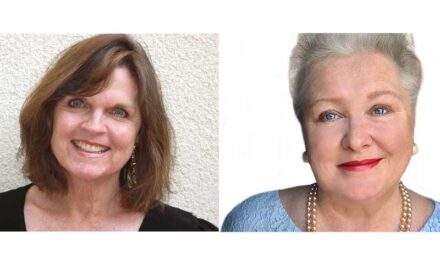PALM SPRINGS – In the midst of a series of embarrassing missteps in Joy Silver’s campaign, one of her consultants insisted there was no story. He said the real story is Sen. Jeff Stone’s conflict of interest.
Silver, a Democrat, is looking to unseat Republican incumbent Stone.
“We’ve got serious issue differences in this campaign and this random fracas shouldn’t distract from it,” Dan Rottenstreich, a spokesman for Silver, wrote in an email. “In the meantime, perhaps you might consider inquiring about the ethical implications of pharmacist-cum-Senator Jeff Stone introducing a bill to exempt his own employees from overtime pay rules. Seems like something voters would be interested in hearing about.”
He declined to elaborate.
The Silver campaign is referring to Senate Bill 1404, which Stone, a pharmacist, introduced. It would have exempted pharmacists from overtime regulations. The bill never received a hearing because the votes were not there to pass it out of the Senate Labor committee.
The entire Fact Sheet for SB 1404, which was prepared by Sen. Stone’s legislative office, is available to read here.
“Any accusation of conflicts of interests is baseless,” Andre Levesque, a spokesman for Stone’s campaign, told Uken Report.
Not everyone agrees.
Steven L. Fuchs, a former attorney and adjunct professor at College of the Desert, disagrees. Fuchs, who teaches business law and government, said, “It just doesn’t pass my smell test in terms of ethics,” Fuchs told Uken Report in a telephone interview.
SB 1404 recognizes clinical pharmacists as professional members of the healthcare team by releasing them from the fiscal restraints of non-exempt status so they can provide patient care services as defined by state law and as healthcare providers authorized to provide essential services to ensure safe effective use of medications, Levesque said. It also would have clarified that pharmacists in post graduate education training and research programs are exempt from the provisions of the orders of the Industrial Welfare Commission.
Just like physicians, pharmacists are trained medical professionals and this bill was intended to clean up SB 651 passed in 2000 that removed pharmacists from the list of occupations classified as non-exempt, Levesque explained. The bill was introduced after Sen. Stone heard from several pharmacists from across the state who complained that existing law was making it more difficult for them to meet the needs of their patients.
“There was no conflict of interest,” Levesque reiterated. “SB 1404 would have applied to an entire industry — not a specific (pharmacist) or specific group of pharmacies. Additionally, would a lawyer specializing in criminal law have a conflict of interest if he or she wrote a bill to change the evidence code?”
“There’s the law, and then there’s the ethics,” Fuchs said, citing Section 89-20 of Article II of the Code of Ethics for the Legislature.
It’s a full disclosure statute that if you do have direct interest in legislation that you’re voting on, not that you’re proposing, but you’re voting on, you must disclose it and you should also make a statement saying that there’s no substantial conflict between your vote and your interest in whatever business that may be helped, Fuchs said.
“That’s what the law is today. At a minimum, I think it’s a good idea to have a full disclosure statute, because, obviously, if there’s not a conflict, there’s certainly an appearance of impropriety when somebody proposes legislation that is specifically tailored to their particular business,” Fuchs said.
Additionally, California legislators have been professionalized, Fuchs said.
“They get full-time pay,” Fuchs said. “Now, they’re allowed to do some things on the side, but if we were, say, in New Hampshire, or in Texas, where they meet only briefly, and there’s a lot of them, and they get very little money, then maybe they should be entitled to a little bit more flexibility. But, since they all get paid six figures as Congress does, it seems to me we should be stricter with our Legislators than some of the other states that have part-time or underpaid legislators.”
Fuchs questioned why pharmacies in particular should be exempted, and whether there’s a really good reason for Stone to have introduced the legislation.
“That would be my first question, because if there’s some compelling reason to treat pharmacies differently than all other businesses, then I might say, ‘Well, you know, I don’t like the form, but in substance it makes sense.’ Or, he should have one of his 39 other senators introduce it. It’s weird that he would introduce it. It shows how shameless our politicians have gotten.”
In the interest of full disclosure and to avoid the appearance of a political conflict of interest, Fuchs describes himself as center-left, generally.
“On civil liberties and civil rights, I’m more on the left,” he said. “On economic issues, I’m more centrist, and sometimes a little bit on the right. So, I don’t really have any extreme ideology either way. I always try to look at things objectively and weigh both sides. That’s very hard to do. A lot of these things don’t usually accommodate that type of analysis.”







